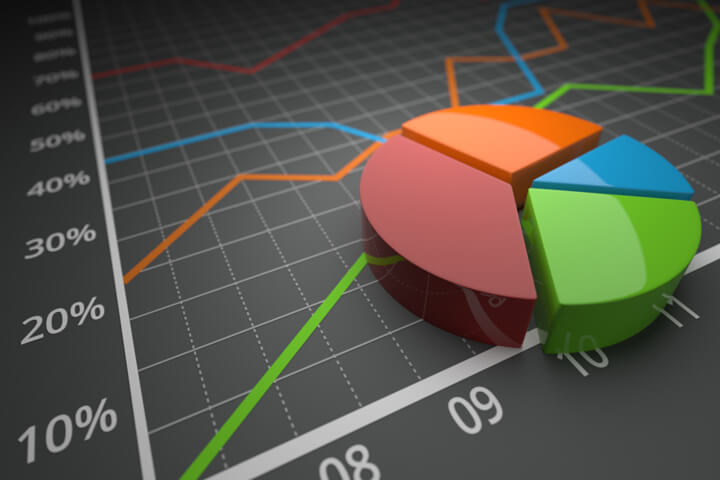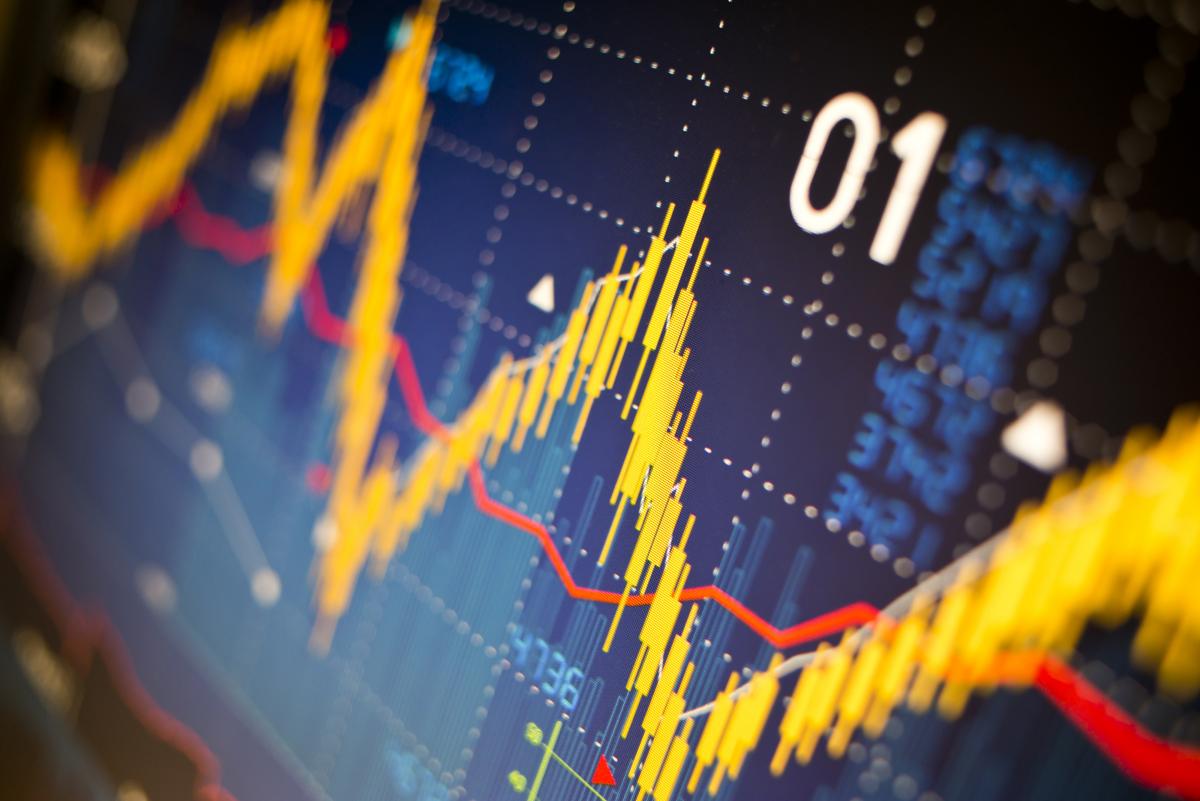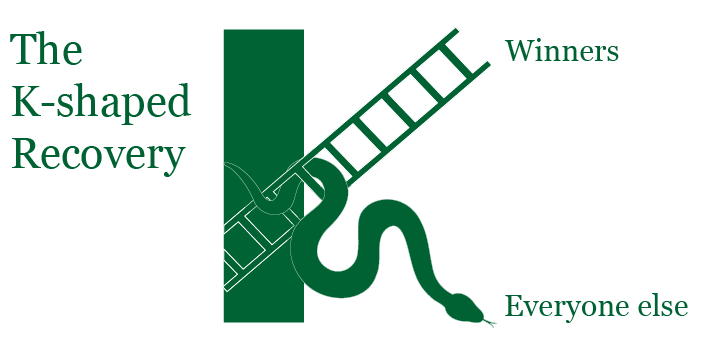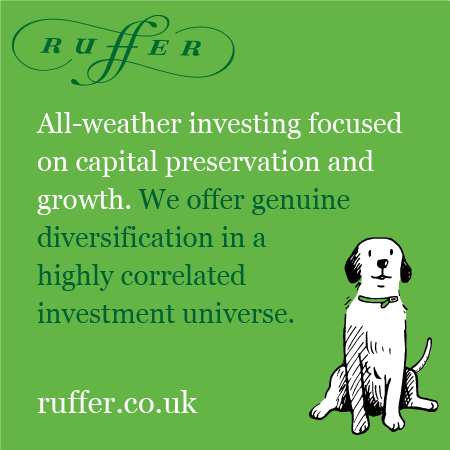The K is not OK

The unique shape of the Covid-19 crisis and accompanying recession has meant some industries have thrived while others have dived. In caricature, everyone now uses Zoom and Peloton, while offices and gyms were forced to close.
What does the K mean? Online shopping wins, traditional retailing loses. Commercial property such as offices and shops lose, but logistics warehouses thrive. City apartments struggle, suburbs with gardens boom. The digital economy beats everything.
Size too has been an important factor—large companies with access to the corporate bond markets have been able to take advantage of easy money policies. Smaller companies and startups surviving on a shoestring have been starved of the oxygen of cash flow. As a result, the big have gotten bigger.
Unfortunately, the K applies to people too. Those least able to bear the burden have carried the cost of the Covid crisis. Low earners have had a 25% hit to earnings (1). Most readers of the Green Line will be educated, digital native, knowledge workers who mostly have seen their earnings unaffected.

The economic costs have been greater for the young, the unskilled, minorities and working mothers. Covid has also badly disrupted education which is perhaps the key driver of social mobility.
Lockdown was a different experience in a tower block. The International Monetary Fund (IMF) forecast close to 90 million people globally will fall below the extreme income deprivation threshold of $1.90 per day (2) because of Covid. Everywhere winners and losers.
And this has come after a decade in which the main effect of quantitative easing was to benefit asset owners rather than those who were trying to become asset owners.
So the K is not OK—it will crack—it is intrinsically unsustainable. The K is not OK because it leads to a hollowing out of the economy and as we are observing it will exacerbate inequality and cost far too many jobs. And because governments can read the mood of voters too, this will ultimately lead to government intervention and antitrust. The first signs are showing with talk of student debt forgiveness and a $15 minimum wage in the US (3).
But does the vaccine challenge the K? Yes. We think a vaccine breaks the K because it offers a lifeline to the less fortunate. Government intervention, and we expect lots more, will become stimulus rather than life support.

The Ruffer equity portfolio is filled with stocks primed to do well in a vaccine led normalisation of economic activity—Vinci, Aena (airports), American Express and Land Securities.
Despite the large rally in these stocks since the Pfizer/Moderna announcements these investments are still deeply out of favour and yet the prospect of recovery is that much more tangible. The debate has moved from ‘If?’ to ‘When?’.
If this value rotation is for real, it has far more than just days left to run. From a portfolio perspective, there is a clear opportunity in such stocks. There might be bumps in the road, but things are looking up for 2021.
(1) US employment, deviation from January 2020. Source: Paychex, Earning and Intuit. Aggregated and seasonally adjusted estimates
(2) IMF World Economic Outlook, October 2020: A Long and Difficult Ascent
(3) joebiden.com
Past performance is not a guide to future performance, investments can go down as well as up and you may get back less than you originally invested. The information contained in this document does not constitute investment advice or research and should not be used as the basis of any investment decision. References to specific securities are included for the purpose of illustration only, they are not a recommendation to buy or sell. Ruffer is authorised and regulated by the Financial Conduct Authority.








